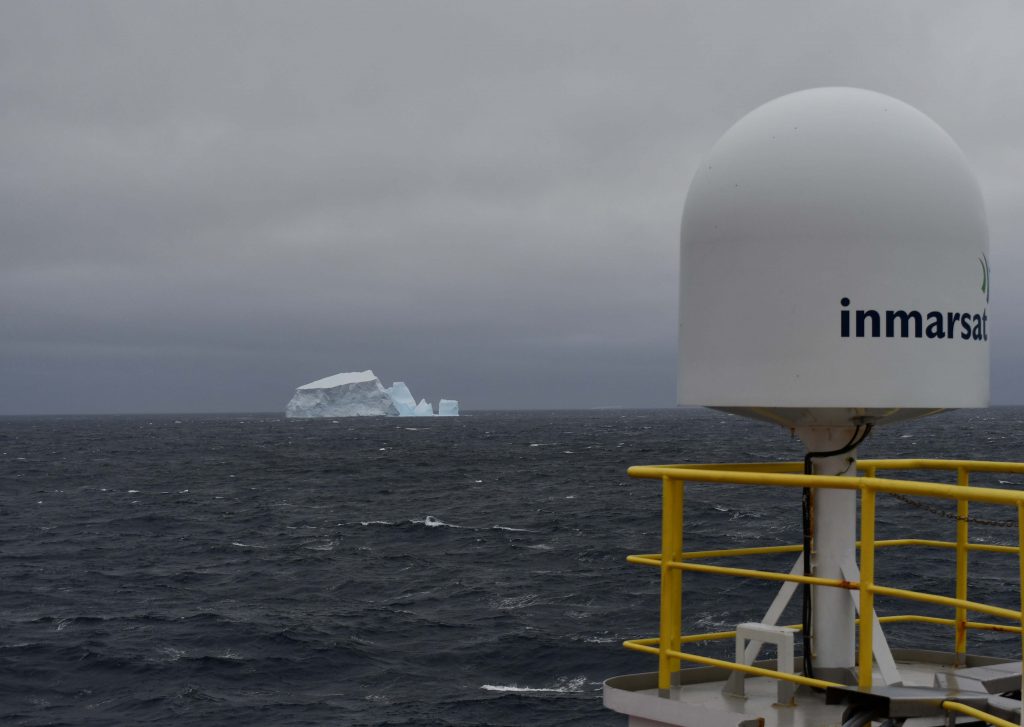
Question Grab Bag
Today, I’m reaching into the question-grab and answering what you’ve asked me about, everything from icebergs to life at sea.
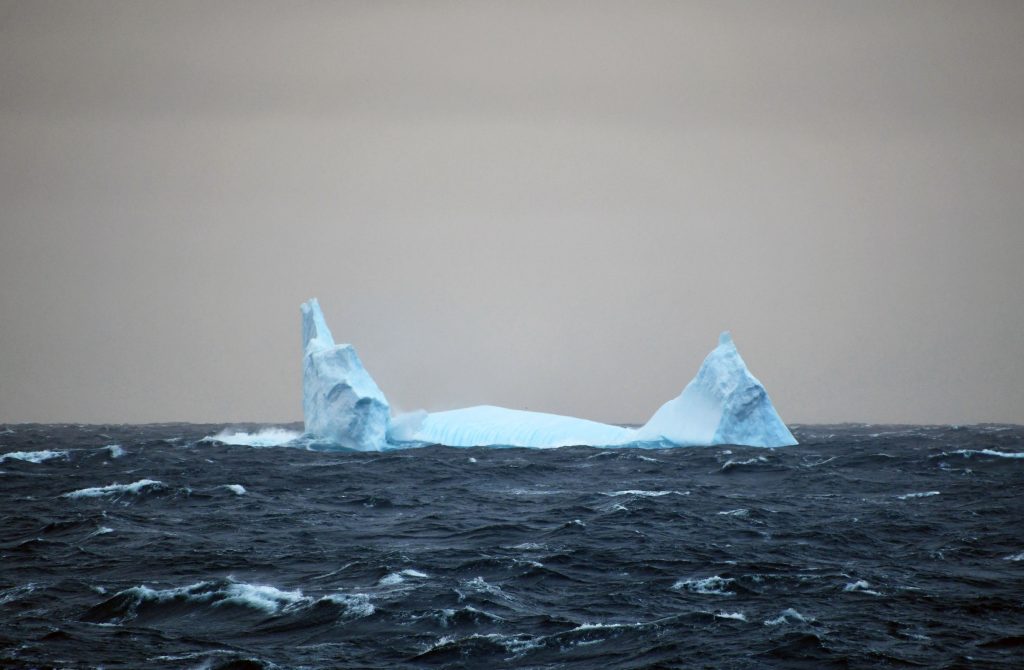
Icebergs
Are they fresh water or a mix of salt and fresh or all salt? Icebergs consist of fresh water. An iceberg forms when ice that originated as snow on fresh land calves from a glacier or ice shelf. It’s even been proposed that icebergs could be towed to drought-stricken areas as a source of fresh drinking water! (Compare sea ice, which is frozen sea water. But as sea ice gets older, the brine drains out of it, too, until it is mostly fresh water.)
Does the ship have a reinforced hull for the icebergs? No. This is not an ice class ship. The rule with icebergs is that you stay well away from them. Even an icebreaker does not want to go anywhere near an iceberg.
If you were to hit an iceberg and the ship were compromised, what would the next steps be for everyone aboard?
Rule #1: DON’T hit an iceberg. This is, of course, our primary concern here in Iceberg Alley.
If the worst happened, and the ship were comprised for some reason, we would take to the lifeboats. Each week, we have a drill to practice for this. There are 7 short blasts on the ship’s alarm, followed by one long blast and a message from the captain. Whatever we’re doing, we drop everything, put on our warmest clothes and sturdy shoes, don our lifejacket, hardhat, and safety glasses, take the bag with our cold-water immersion suit up to the bridge (top) deck where the 4 lifeboats are, and gather at our assigned lifeboat for roll call. Each lifeboat can carry 75 people, so with 126 people aboard, we’re well-covered. There are also a number of inflatable life rafts.
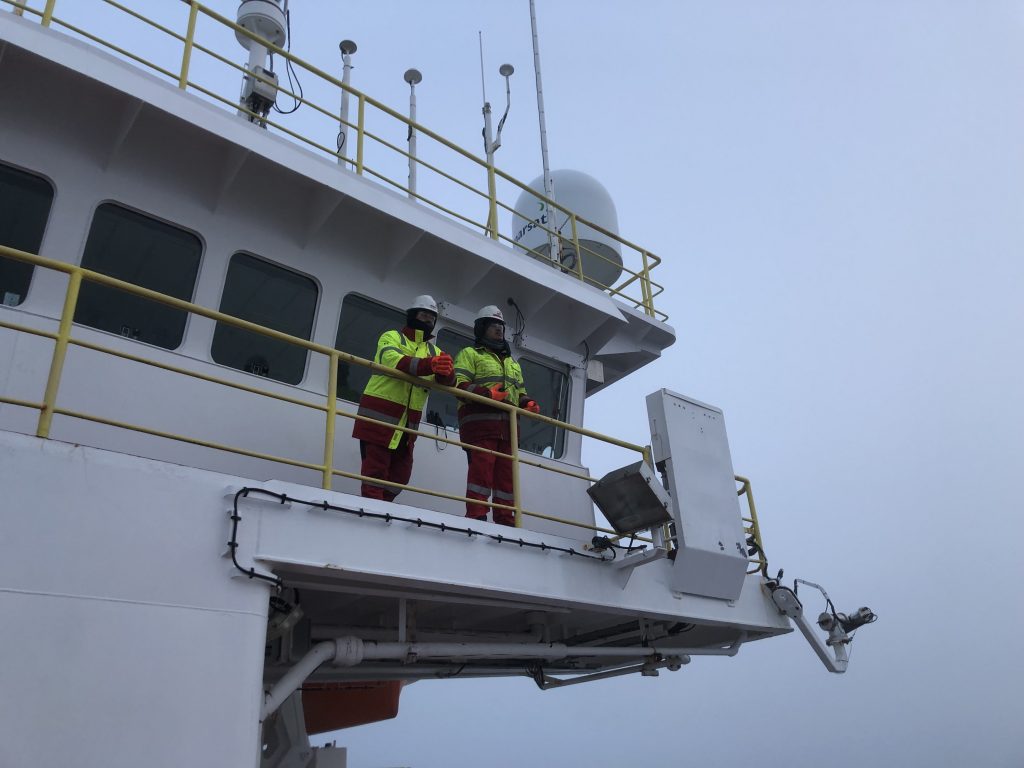
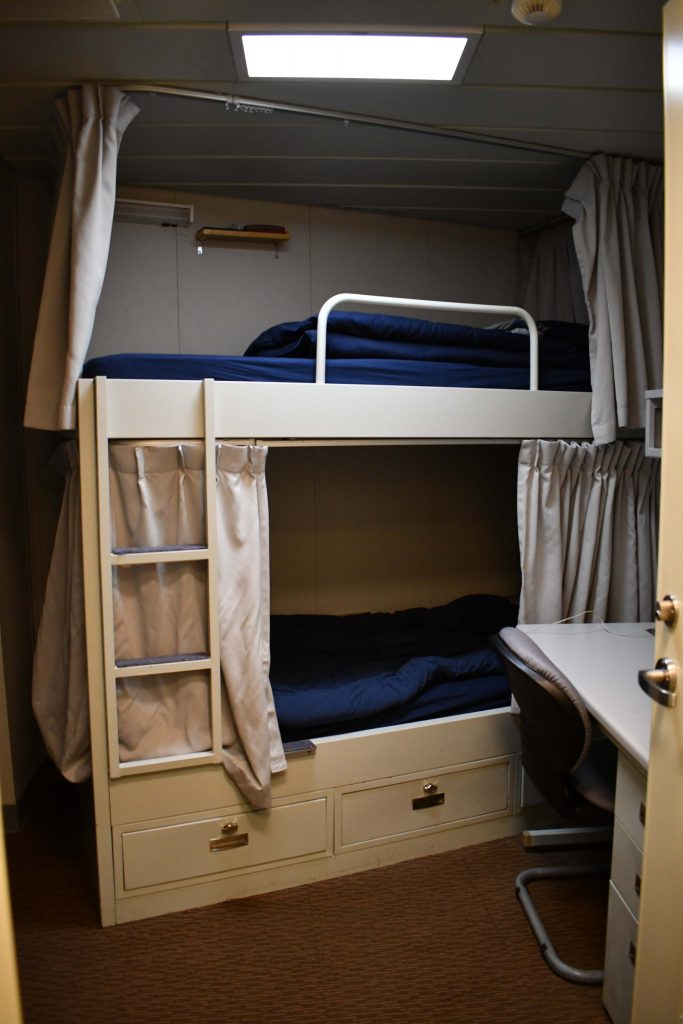
Accomodations
What are the bathrooms like on the boat? Most cabins share a bathroom with another cabin. There’s a shower and a toilet. Each cabin has a basin. The toilets operate on a vacuum system, like on an airplane but with water, too.
What about a bath? We only have showers.
Ever have warm water? Our water is always deliciously hot.
I’d like to know about the beds. We have bunk beds in each cabin. I adore my bed. It’s more comfortable than my bed at home, and I just love climbing into my “hidey” and pulling the privacy curtains at bedtime. Then the motion of the ocean rocks you to sleep. It’s quite lovely. Also, almost everyone shares a cabin. Because we are on 12-hour shifts, we each get the cabin to ourselves for our 12 hours off, so we get plenty of privacy.
How do you deal with a disrupted sleep schedule? It can really mess you up. We stay on our schedule for the entire 2 months we’re out here. The first 10 days or so were harder for the night shift, as we had a more difficult transition to working midnight to noon. But now we go to bed between 2 and 4 pm and get up to start work at 11:45 PM. Most of us have adapted just fine. (We do drink a lot of coffee, though!)
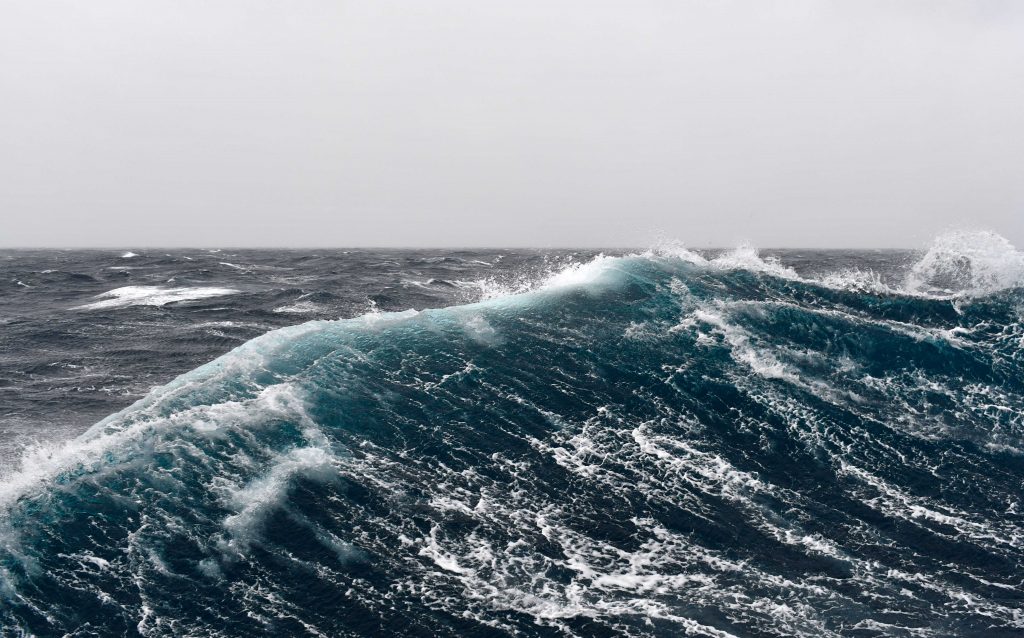
Sea-sickness and Waves
Do people go down for the count due to motion sickness, and what do you do about it? Yes. There were definitely a few unwell/knocked-out people the first week, and some people continue to feel unwell when the seas pick up, which is quite often. The trick is to rest, keep eating (they supply a constant stream of crackers in the mess), stay hydrated, get fresh air, focus on something else, and take seasickness meds if needed. Staying in the lowest part of the ship (where the movie lounge happens to be) can help, too. The doctor can provide more serious seasickness shots if people are really struggling.
How hard is it to walk around when the boat is rocking on those big waves? It depends. The ship is pretty stable overall, as it has 12 dynamic thrusters designed to keep it steady while we are drilling. But it does get rocky. In fact, as I’m writing this, the seas are picking up and I’m on a stool in the lab, clutching the desk and my computer now and then. It’s important to be careful when walking in big seas. Going up and down stairs in heavy seas can be challenging: you have to time it right, or it’s like walking in increased or lower gravity.
How do you deal with heavy seas? You get used to it and don’t really notice it that much. In bigger seas, the gallows humor always seems to come out. But a lot of us actually enjoy the storms. We’re sailing in the world’s roughest ocean. We signed up for this and see it as part of the amazing experience.
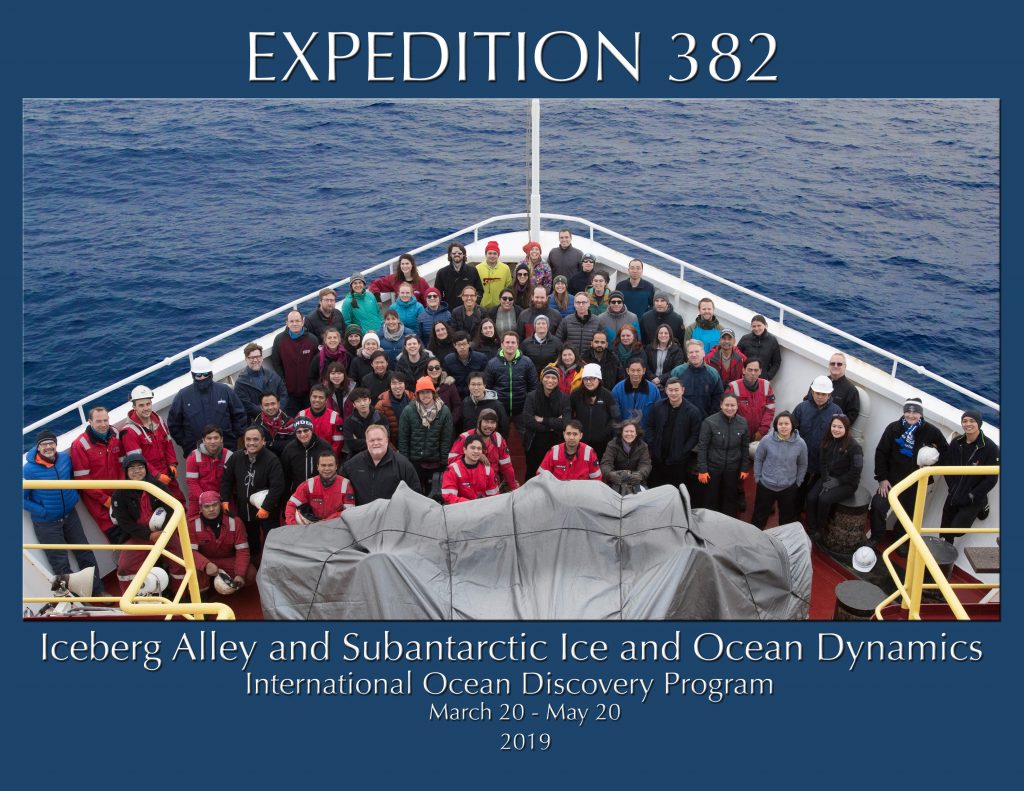
People & jobs
How many people are on the ship? We have 126 people onboard.
What are the different jobs? We’re divided into:
- Science team, including two Outreach Officers
- Technicians (most of whom are also scientists)
- Ship’s crew
- Drilling crew
- Stewards (who prepare our food, clean the ship, and do our laundry)
Is everyone onboard instant friends? Because it feels like you must NEED to get along with everyone in such small quarters and circumstances. You do need to get along, no doubt. The selection process is pretty intensive, and so our psychology and ability to play nicely are considered. Most of us are used to experiences like this and know how to maintain sanity in an intense small-group environment.
If someone starts to get on your nerves, you take some time out. But tensions can arise. I had to deal with a situation a few days ago when someone lost their temper with me out of the blue and unreasonably. Not overreacting, giving the person space to calm down, and then talking it out calmly is the best course of action, of course. Sometimes people are just overwhelmed and need support. It’s true that not everyone is cut out for this, but they probably won’t come back for more or be hired again.
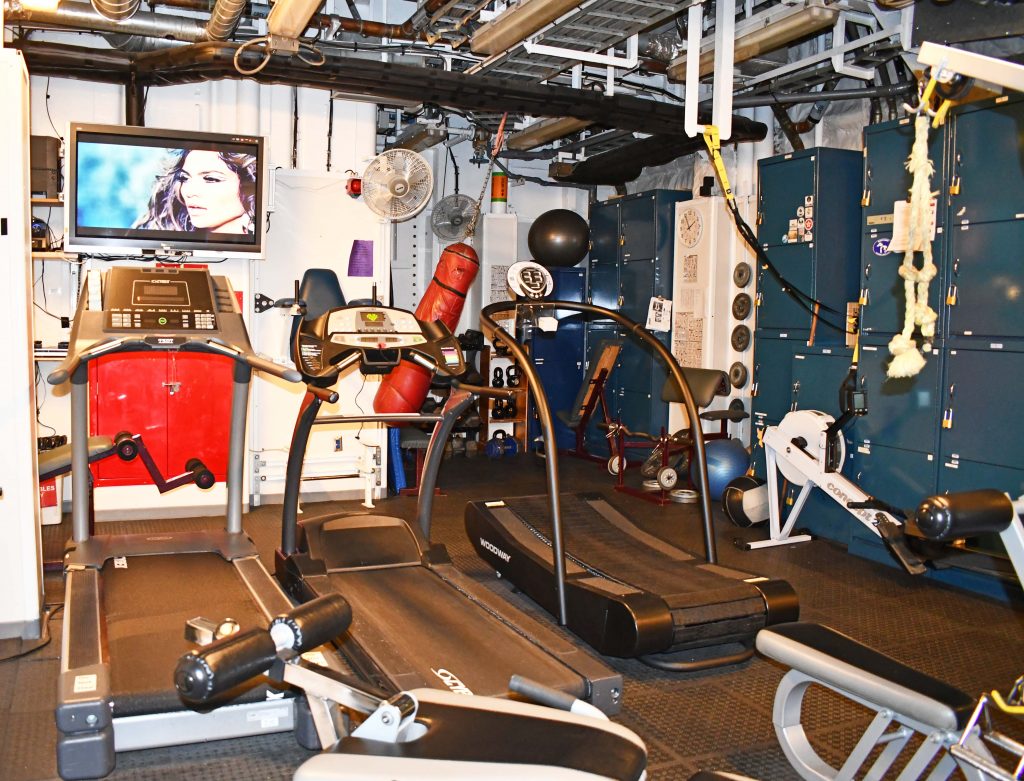
Recreation & Exercise
How do you spend your leisure time, or do you get any? We work 12-hour shifts, 7 days a week, for 2 months. So, there’s not a huge amount of leisure time, and we’re often quite tired by the time we’re done with work. Some people do yoga, and we have a gym and a movie room with a huge selection of movies. Some people play games. Some of us like to go outside, enjoy the view and wildlife, and take photos. There’s also time spent talking to family, checking social media and email, and so forth.
What percentage of time are you on deck and what do you need to wear to be comfortable? Most people don’t spend a lot of time outside on this cruise, as the temperature and weather aren’t conducive to it. I’m one of a very small handful who spends an hour or so outside after work each day. I wear what you’d wear on a very cold winter’s day: layers, a winter coat with hood, a hat, gloves, scarf. Something to cover your face is a must in this bitter wind. If it’s really cold, and I expect to be out for a while, I wear insulated ski overalls and two pairs of gloves.
Fuel
Is the ship nuclear-powered. No. It’s powered with gasoline.
Water: does the ship have its own desalination plant? We use sea water to make fresh water. The heat of the engines evaporates the water, so we get distilled water with various minerals added back in.
Random
Time zone boundaries are really close together. How do you keep track of that? That’s at the captain’s discretion. We have stayed on the time zone of the port we started from: Punta Arenas, Chile. It’s especially important for us Outreach Officers because we are scheduling live ship-to-shore video broadcasts around the world daily.
What are your favorite animals that you see only in the Antarctic? Penguins, of course! Also, albatross, petrels, and other birds unique to the Antarctic. Fur seals (and others in some parts of the Antarctic). (We’ve seen a LOT of whales, mainly humpbacks, but you can see those elsewhere.)
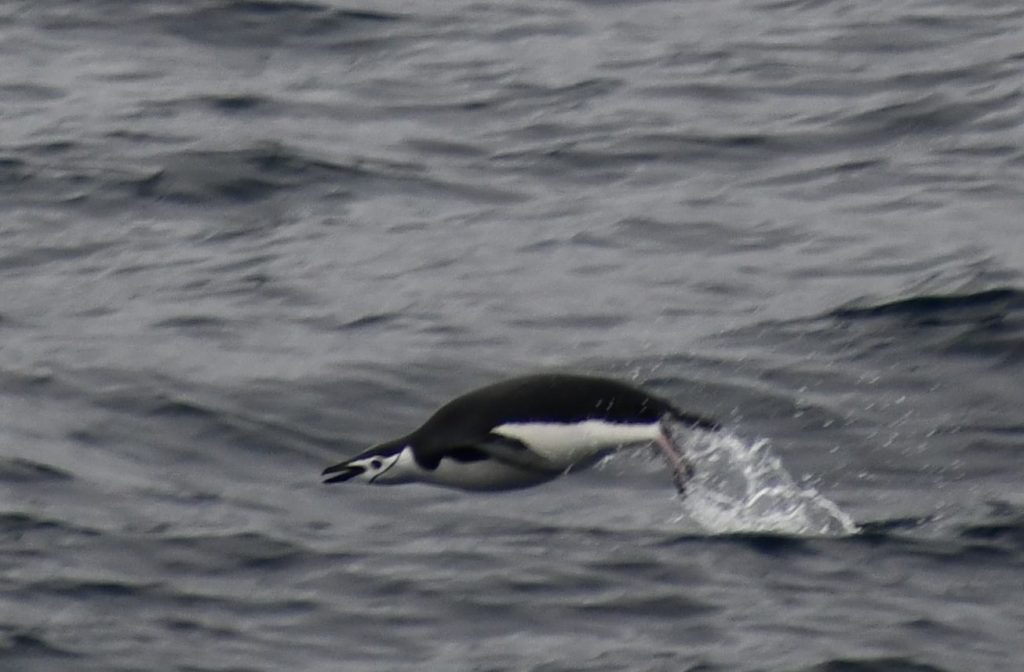
This Q+A has been very enjoyable, and we’ll done.
Good too see you have completed half hour voyage and still have a strong positive spin on your outreach and I suspect you are making great progress on your projects.
Thanks for the Q&A. I had some of these questions too.